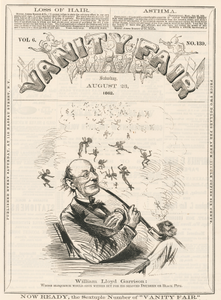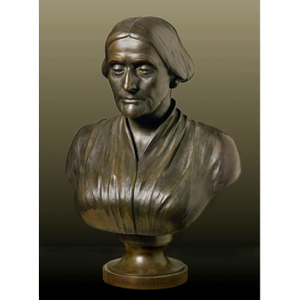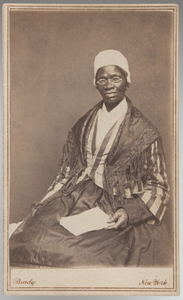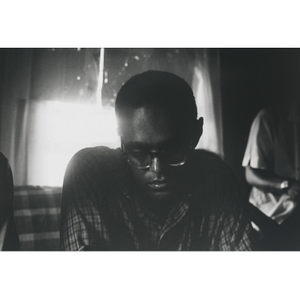Description
Single-handedly, William Lloyd Garrison transformed the antislavery movement from a discussion about gradually ending slavery into a moral crusade demanding "immediate and complete emancipation." A printer and editor, Garrison experienced his near-religious conversion to abolitionism around 1828 and founded the American Anti-Slavery Society in 1833. At first, he was a lone, fierce, and unpopular voice; at one point, he was almost lynched in his hometown of Boston. But Garrison refused to back down: "I will not retreat a single inch-and I will be heard!" he thundered. His attack on slavery grew so fierce that he condemned the Constitution as a corrupt document for permitting it. Garrison's extremism was not shared by all, yet he and his growing number of followers forced the North to the previously radical proposition that slavery was both immoral and antithetical to the country's founding principles.Estate of Garrison Norton [d.1995], Washington, D.C.; bequest to NPGThe Frick Art Reference Library records: Robert W. Purvis, Philadelphia; purchased by Edward M. Davis,Philladelphia; his heirs; Charles Henry Davis, Bass River, Mass.; his widow; purchased 1951 by Foster Wild Rice, Rowayton, Conn.; Garrison Norton, great grandson of sitter
Image
Oil On Wood
National Portrait Gallery, Smithsonian Institution; bequest of Garrison Norton
Record Contributed By
National Portrait GalleryRecord Harvested From
Smithsonian InstitutionKeywords
- Abolitionist
- Abolitionists
- Activist
- Activists
- Alcohol
- Communications
- Costume
- Design
- Dress Accessories
- Dress Accessory
- Education
- Educator
- Educators
- Eyeglasses
- Garrison, William Lloyd
- Interior
- Interior Decoration
- Jocelyn, Nathaniel
- Lecturer
- Male
- Men
- Newspaper
- Newspapers
- Portrait
- Portraits
- Publisher
- Reformer
- Reformers
- Society And Social Change
- Suffragist
- Temperance
- William Lloyd Garrison





















